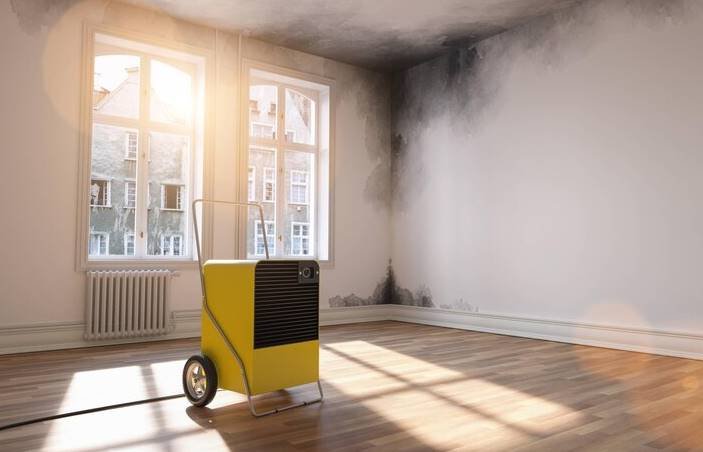It’s a common dilemma whether should you heat rooms in your home that aren’t being used or not? In this article, we’ll explore the factors you should consider when making this decision. From energy efficiency to comfort and cost-effectiveness, we’ll provide you with valuable insights to help you optimize your heating practices. By the end, you’ll have a clearer understanding of whether heating unused rooms is the right choice for you.
Key Takeaways:
- Energy Efficiency: Heating unused rooms can lead to unnecessary energy consumption, impacting both your utility bills and the environment.
- Comfort vs. Savings: Find a balance between maintaining comfort levels and reducing heating costs by selectively heating occupied areas.
- Health Considerations: Proper ventilation and preventing dampness in unheated rooms are vital for maintaining a healthy indoor environment.
- Insulation and Airflow: Good insulation and airflow control are crucial for temperature distribution, influencing the need to heat unused rooms.
- Smart Heating Solutions: Explore programmable thermostats and zoning systems for more efficient heating based on room occupancy.
Energy Efficiency Considerations
Impact on Overall Energy Consumption
Overall, heating unused rooms can significantly contribute to higher energy consumption and increased environmental impact. According to the U.S. Department of Energy, heating accounts for about 45% of the average household’s energy bills. By heating rooms that are not in use, you are necessaryly wasting energy and money. This excess energy usage not only burdens your wallet but also puts unnecessary strain on the environment.
Potential Energy Savings
One way to reduce your energy consumption and lower your heating costs is by not heating rooms that are not being used. By focusing your heating efforts on occupied areas, you can potentially save up to 20% on your heating bill, as estimated by the Environmental Protection Agency. Understanding the impact of heating unused rooms on your overall energy consumption is crucial in making informed decisions about your heating practices.

Comfort vs. Cost
Maintaining Comfort Levels
Some people prioritize keeping all areas of their home at a consistent, comfortable temperature to ensure a cozy living environment for themselves and their family. However, this may result in unnecessary energy consumption and higher heating costs if rooms that are not frequently used are also being heated.
Reducing Heating Costs
The key to reducing heating costs is to only heat the rooms that are actively being used, effectively saving energy and money. By focusing heating efforts on occupied areas and not wasting energy on heating unused rooms, you can achieve a balance between comfort and cost efficiency in your home heating practices.
On the other hand, keeping unused rooms unheated can have the added benefit of preventing heat loss through these areas, ultimately reducing your overall energy consumption and lowering your heating bill.
Health and Environmental Factors
After considering the impact of heating unused rooms on energy consumption and comfort, it’s also crucial to assess the health and environmental factors involved. Proper ventilation and prevention of dampness and mold are key aspects to take into account when deciding whether to heat unused rooms in your home.
Proper Ventilation
An important aspect to consider when heating or not heating unused rooms is the maintenance of proper ventilation. Ensuring that fresh air can circulate throughout your home, even in unheated spaces, is crucial for your overall health and well-being. Without adequate ventilation, indoor air quality can deteriorate, leading to potential health issues such as respiratory problems and allergies.
Dampness and Mold Prevention
For dampness and mold prevention, it is crucial to maintain a consistent temperature in your home, even in areas that are not frequently used. Mold thrives in damp and dark environments, making unheated rooms susceptible to mold growth. By heating these spaces, you can prevent moisture buildup and inhibit the growth of mold, which can have adverse health effects on you and your family. Health and environmental factors play a crucial role in deciding whether to heat unused rooms in your home. Proper ventilation and mold prevention are crucial considerations to ensure a healthy indoor environment for you and your loved ones.
Practical Heating Solutions
Insulation and Airflow
Heating your home efficiently starts with ensuring proper insulation and good airflow throughout your space. Without adequate insulation, heat easily escapes, resulting in higher energy consumption and wasted resources. By sealing any gaps or leaks and adding insulation to walls, floors, and ceilings, you can maintain a more consistent temperature and reduce the need to heat unused rooms. Maintaining good airflow through vents and open doors can help distribute heat evenly, preventing cold spots and improving overall comfort.
Smart Heating Technologies
To optimize your heating practices, consider investing in smart heating technologies like programmable thermostats and zoning systems. Programmable thermostats allow you to set specific temperatures for different times of the day, ensuring you only heat rooms when needed. Zoning systems provide even more control by allowing you to divide your home into separate heating zones, adjusting temperatures based on occupancy. These technologies not only help save energy and reduce costs but also enhance your overall comfort by tailoring heating to your specific preferences.
The benefits of smart heating technologies go beyond convenience and comfort. They can also lead to significant energy savings, with some studies showing that programmable thermostats can reduce heating costs by up to 10-30%. By utilizing these smart solutions, you can effectively manage your heating system, minimize energy waste, and create a more sustainable and comfortable living environment for you and your family.
Conclusion
To wrap up, the decision of whether or not to heat unused rooms in your home is a personal one that requires careful consideration of various factors. By prioritizing energy efficiency, comfort, and cost-effectiveness, you can make informed choices that optimize your heating practices.
Maintaining proper insulation and airflow, utilizing smart heating solutions, and adjusting your heating strategies based on seasonal variations can all contribute to a more efficient and comfortable living environment. At last, it’s up to you to find the balance that works best for your specific needs and preferences. So, take a moment to assess your heating habits and make any necessary adjustments to create a cozy and cost-effective living space for yourself and your family.
FAQ
Q: Is it necessary to heat unused rooms in my home?
A: Heating unused rooms can lead to unnecessary energy consumption and higher utility bills. It is advisable to consider energy efficiency and cost-effectiveness before deciding to heat all rooms.
Q: How can I save on energy by not heating unused rooms?
A: By selectively heating only occupied areas, you can reduce energy waste and lower your heating costs. This can be achieved through smart heating solutions like programmable thermostats and zoning systems.
Q: Are there any health concerns related to heating unused rooms?
A: Heating unused rooms can lead to poor ventilation and the potential growth of dampness and mold. Proper airflow and insulation are important factors to consider to maintain a healthy indoor environment.
Q: How can I improve temperature distribution within my home without heating unused rooms?
A: Ensuring adequate insulation and good airflow throughout the house can help control temperature variations. By focusing on heating frequently used areas and optimizing airflow, you can enhance comfort levels without heating unused rooms.
Q: What factors should I consider when deciding whether to heat unused rooms?
A: Factors such as energy efficiency, comfort levels, insulation quality, heating system efficiency, local climate conditions, and seasonal variations should all be taken into account when determining the most optimal heating strategy for your home.


















